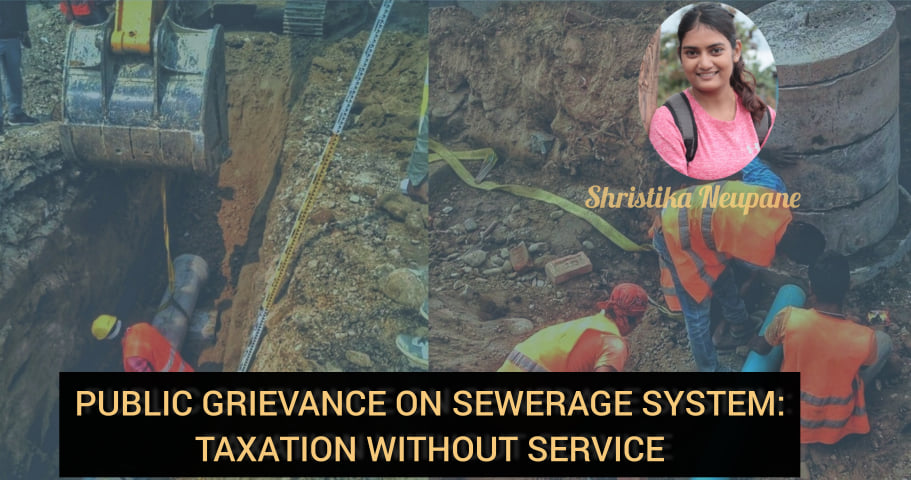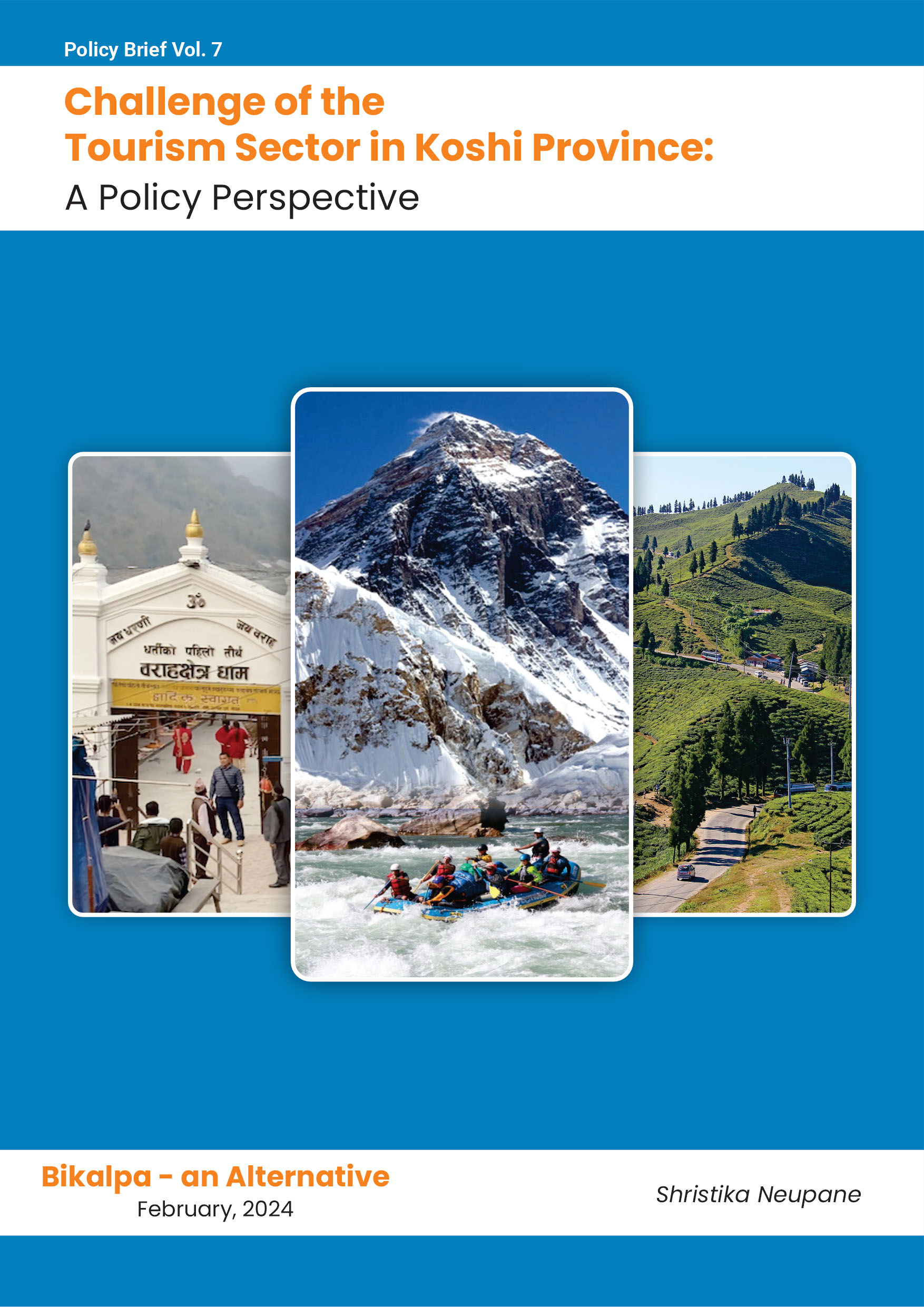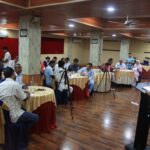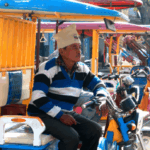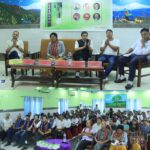Sewerage Systems are a classic example of public good and have a massive impact upon public health and the system. Globally, wastewater sanitation has long been considered a priority for the advancement of human health, especially in avoiding infant and child mortality. With the motive of improving the urban environment, health, and hygiene of the people through infrastructure development, the Secondary Town Integrated Urban Environment Improvement Project (STIUEIP) was launched to restore the urban roads where drainage and sewerage work had been undertaken. The Regional Urban Development Program (RUDP) further aided STIUEIP to improve the urban infrastructures, water supply, and sanitation of Biratnagar.
According to Mr. Bharat Neupane, project manager of STIUEIP, 80% of the venture work has been achieved. The Wastewater has been collected in the treatment plant and finally drained to the Singhiya river after treatment. To date construction of 18.56km Sewerage, 606 manholes, 691 sewer inlets, 2876 house chamber connections have been accomplished. The project has received aid from Regional Urban Development Project (RUDP), the Department of Urban Development and Building Construction (DUDBC), under the Ministry of Urban Development (MUD) through the Government of Nepal. It is financed directly and indirectly through government funding and Asian Development loans. The estimated financing of the project is 700 million.
The STIUEIP was launched on December 6, 2013. Two policy guidelines were issued by the local government with the announcement that residential properties within the parameter of construction shall be demolished. Several conflicts were aroused between local residents and the local government due to the exploitation of property rights. Nevertheless, no compensation was received by the property owners who lost their property due to the expansion drive. Apart from this, the vigorous advancement of constructions and restorations impacted the air quality of Biratnagar for 5/6 years. However, the general public set forth mutual support in the demolition for better roads, managed traffic and embellishing Biratnagar. It also received significant appreciation as a pride project.
In order to ascertain the necessary information about the Biratnagar Sewerage System several meetings, discussions, and dialogue were organized with the municipal officers, project manager, civil society members, and general public. Correspondingly, in Feb 2020, a focus group discussion was prepared to gather surplus insights on the current scenario of the project. Altogether 22 participants referred to the policy, financial and personal issues concerning the Biratnagar Sewer System that is negatively affecting the life of the residents of Biratnagar. A common view expressed by all the focus group participants is the “Taxation Without Service.” All of the Focus Group Discussion participants were found to be paying sewerage tax without getting the service. Participants showed their grievance on Municipality for not addressing the taxation issues even after multiple delegations and discourses with Mayor and Municipal officers.
The initial phases of the discussion included the house sewage pipe not being connected to the manholes of the chamber. It costs a huge amount of personal expenses to link the house sewage pipe to the manholes. The participants expressed that they already have a septic tank in their house, which was constructed by paying the heavy sums; thus, they should be given choices to connect the house to the sewage chamber. It is unnecessary to compel the citizens to join the house sewage to the chamber as they have properly managed the septic tank according to the guidelines of the government. Also, the municipality is showing reluctance to take property tax without paying sewerage tax. They opined that this assertiveness of the municipality is exploiting the individual liberty of the residents of Biratnagar.
The second phase of the Secondary Town Integrated Urban Environment Improvement Project (STIUEIP) is currently running; the first phase Regional Urban Development Program (RUDP) has already been completed with a budget of around 700+ million which placed chambers on only 6 wards of Biratnagar. Some of the participants highlighted that the project lacks transparency and put questions on the project’s sustainability.
Previously, Civil society members stopped the work in many places like Panchali, Puspalal chowk and also complained to the concerned authority, but their problem remained unheard. The discussion called attention to the possible chances of health hazards due to leakage of pipes and blockage of the chamber. Likewise, many uncovered chambers lead to accidents, and a tipper even submerged in the road at Biratnagar 10.
Similarly, participants largely agreed that practically, there are numerous technical faults in this project which can lead to the failure of this project in the coming days. The main issue raised was the lack of trust in the governance and technicality of the project. It is due to this reason the participants are showing unwillingness to connect their house to the chamber. Few participants from the Hotel Association said that this project has been creating a tax burden on the people in business. The ward office has been collecting 3000-30000 Rs from the service-seekers as sewage consumption fees without completing venture work. The absence of Public-Private Partnerships in the project was also raised by the participants.
The participants bestowed several feedback and the best way forward to the municipality which could resolve the issue. They suggested that the municipality should amass Sewerage consumption tax only after offering the services. It is prudent for the municipality to create a trustworthy environment in order to incline the residents towards the project. Likewise, the municipality should reconsider the mandated criteria for levying sewage consumption tax (for now tax is amassed according to the square feet of the house). They opined that the municipality should mandate the tax policy criteria only while constructing a new house, the old house owner must be given a choice to connect the house sewage to the chamber. The discussion conferred to the common voice “ We are ready to pay the tax in the exchange of service if the tax is justifiable”.

